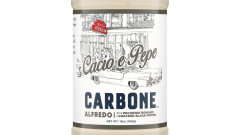If Cilantro Tastes Like Soap To You, You Could Be Making BANK
The other day, Foodbeast Elie ran up on me with some food science questions to help build his TikTok clout. One of the things he asked me was about cilantro tasting like soap.
@yungfoodbeast#AskCosta: why does CILANTRO taste like SOAP 🧼?! || #foodbeast outhereflourishing _bookofelie♬ original sound – yungfoodbeast
A lot of y’all responded with questions about it, especially the part where I said you could be making bank off of it. So I decided to write out a more in-depth response than what 15-20 seconds of TikTok content can get you. That, and Elie hits me with these questions off-guard usually, and as a scientist, I want to make sure I’m getting you the best information possible, rather than what I cobble together in my brain in a half-second.
Hopefully, this answers most, if not all, of what you’re curious to know when it comes to cilantro, your palate, and how you could be making money off of it.

Cilantro itself can taste like soap to those who have the genes coded for it. How this works is simple: those who have the genes coded for it have receptors in our nose (called olfactory receptors) that pick up the soapy aroma of cilantro when it’s released. These chemicals are released no matter what, it’s just a matter of whether we can detect them or not.
Those that can pick them up will get that soapy aroma, which also translates to a bitter taste when you bite into cilantro. If that’s the case for you, there’s a chance that you could be something called a “supertaster.”

Supertasters are those who have specific taste receptors that pick up bitter compounds called phenylthiocarbamide (PTC) and propylthiouracil (PROP), compounds often found in vegetables like kale, broccoli, and brussel sprouts. It’s unclear yet if this compound is present in cilantro, but these taste receptors (or other ones on the tongue) could play into why cilantro has a bitter taste to some. The aroma receptor definitely is a key factor, however.
Those who have these receptors also generally have more tastebuds on their tongue than the average population; supertasters can comprise as much as 25% of the general population.

In a similar vein to supertasters, there are also “supersmellers” who have more, and a higher variety, of types of aroma/olfactory receptors in their noses. Folks who think cilantro tastes like soap often fall into this category as well.
When it comes to making money, supertasters’ and supersmellers’ palates are valued because of both the variety and frequency of their taste buds and olfactory receptors. It means that they are more likely to discern the slightest of differences between products, especially when it comes to more bitter foods like chocolate and coffee.
In the food industry, those with heightened taste and smell can actually get hired to sample product right as it’s coming off the production line. They’re mainly looking to find if there are any slight differences in taste between batches, and if one is detected, they can alert the food science team and let them know something is amiss. These taste testers are a key part of quality control, and often get paid pretty well as a result of that.
Of course, being a food taster for one of these companies is no walk in the park. It requires extensive training to ensure you recognize what the flavor of a product should taste like, calibrating your tongue like a machine tuned to exactly what the company desires their food and drink to be. This can take years of practice to get right, and requires regular checkups to ensure your idea of the taste hasn’t deviated.
For those who do get to this point, though, they get the potential of a career where their primary job is to taste chocolate, coffee, or something else for 8 hours a day and then go back home. Not a bad gig, if I do say so myself.
In terms of actual salary, the number will vary based on experience and training, as well as where you are located. According to job listing aggregate site SimplyHired, a job in the category of “coffee tasting” has an average of $80,000 per year. For wine, that number could fall into the range of about $71,000. There are even “master tasters” of ice cream that reportedly make six figure salaries, although these are usually folks who have been in their jobs for decades.
My field of study in school was sensory science, which involves not just training these tasters and monitoring their results, but also analyzing them and interpreting them to help make better and more consistent-tasting products. In that field, the average salary is about $76,000.
These pay figures obviously come with time and experience factored in, so while you can’t expect to be making that much starting out, you could be literally using your palate to get into a relatively well-paying gig.

So, if cilantro does taste like soap to you, you may have that combination of both supertaster and the olfactory receptors that could prove invaluable to companies that want to make sure their products’ tastes never change. You probably want to get tested on these yourself (there are test kits available for cheap on Amazon), and also undergo palate training.
If you have that and a connection to the food industry, chances are you could find yourself landing one of those tasting jobs.
Illustrations: Sam Brosnan






















